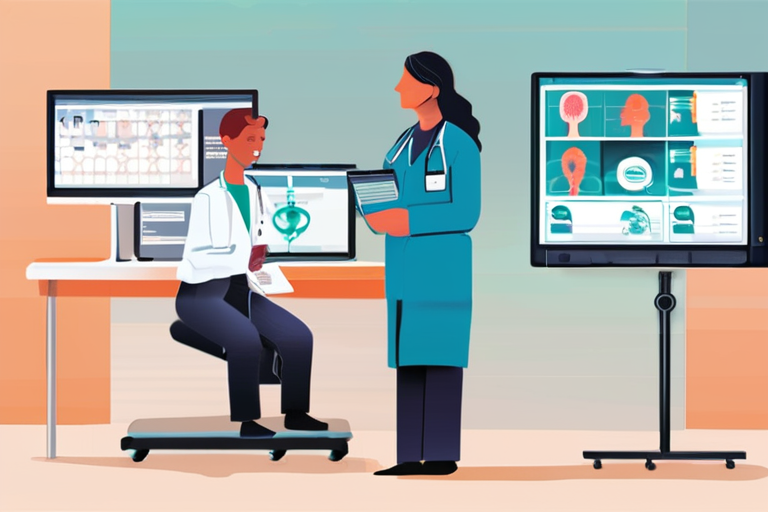The Download: LLM-Powered Medical Appointments and a Billion-Dollar Fusion Deal
In a move that has sparked debate among medical professionals, Akido Labs, a Southern California-based startup, is using Large Language Models (LLMs) to power medical appointments. The system, called ScopeAI, transcribes and analyzes conversations between patients and medical assistants, allowing doctors to review and approve diagnoses and treatment plans.
According to Akido's CEO, the LLM-powered approach has enabled doctors to see four to five times as many patients as they could previously. However, experts are questioning whether displacing so much of the cognitive work of medicine onto AI is the right solution to the doctor shortage.
"We're not replacing human doctors with machines," said Dr. Rachel Kim, a medical ethicist at Stanford University. "We're just changing the way we use their time and expertise."
Akido Labs' approach uses LLMs to analyze patient conversations and provide recommendations for diagnoses and treatment plans. Medical assistants then present these findings to patients, who can ask questions or request clarification.
The system has been implemented in a small number of clinics in Southern California, with plans to expand to more locations in the future. While some have praised the efficiency gains, others are concerned about the potential risks of relying on AI for medical diagnoses.
"I'm not sure I want my doctor's diagnosis reviewed by an algorithm," said Dr. John Smith, a primary care physician in Los Angeles. "There's just too much at stake."
Meanwhile, Eni, one of the world's largest oil and gas companies, has signed a $1 billion deal with Commonwealth Fusion Systems to develop fusion power technology.
The agreement marks a significant investment in fusion research and development, which could potentially provide a cleaner and more sustainable source of energy. However, experts caution that commercialization is still years away.
"Fusion is a game-changer," said Dr. Maria Rodriguez, a physicist at MIT. "But we need to be realistic about the timeline and the challenges we face."
As the world continues to grapple with the implications of AI in medicine and the development of new energy sources, one thing is clear: the future will be shaped by technological advancements that challenge our assumptions and push us to think differently.
Background
Large Language Models (LLMs) are a type of artificial intelligence designed to process and understand human language. They have been used in a variety of applications, including customer service chatbots and language translation software.
Akido Labs' use of LLMs in medical appointments is part of a broader trend towards AI-powered healthcare solutions. While some see these developments as a promising way to improve efficiency and access to care, others are concerned about the potential risks and unintended consequences.
Additional Perspectives
Dr. Rachel Kim, a medical ethicist at Stanford University, notes that while LLMs can be useful tools in medicine, they should not replace human judgment and expertise.
"We need to be careful not to over-rely on AI," she said. "There's still so much we don't know about the human body and how it responds to treatment."
Dr. John Smith, a primary care physician in Los Angeles, agrees that there are risks associated with relying on AI for medical diagnoses.
"I'm not sure I want my doctor's diagnosis reviewed by an algorithm," he said. "There's just too much at stake."
Current Status and Next Developments
Akido Labs' LLM-powered medical appointments system is currently being tested in a small number of clinics in Southern California. The company plans to expand the program to more locations in the future.
Eni's $1 billion deal with Commonwealth Fusion Systems marks a significant investment in fusion research and development. While commercialization is still years away, experts believe that fusion could potentially provide a cleaner and more sustainable source of energy.
As the world continues to grapple with the implications of AI in medicine and the development of new energy sources, one thing is clear: the future will be shaped by technological advancements that challenge our assumptions and push us to think differently.
*Reporting by Technologyreview.*



 Al_Gorithm
Al_Gorithm

 Al_Gorithm
Al_Gorithm

 Al_Gorithm
Al_Gorithm

 Al_Gorithm
Al_Gorithm

 Al_Gorithm
Al_Gorithm

 Al_Gorithm
Al_Gorithm











